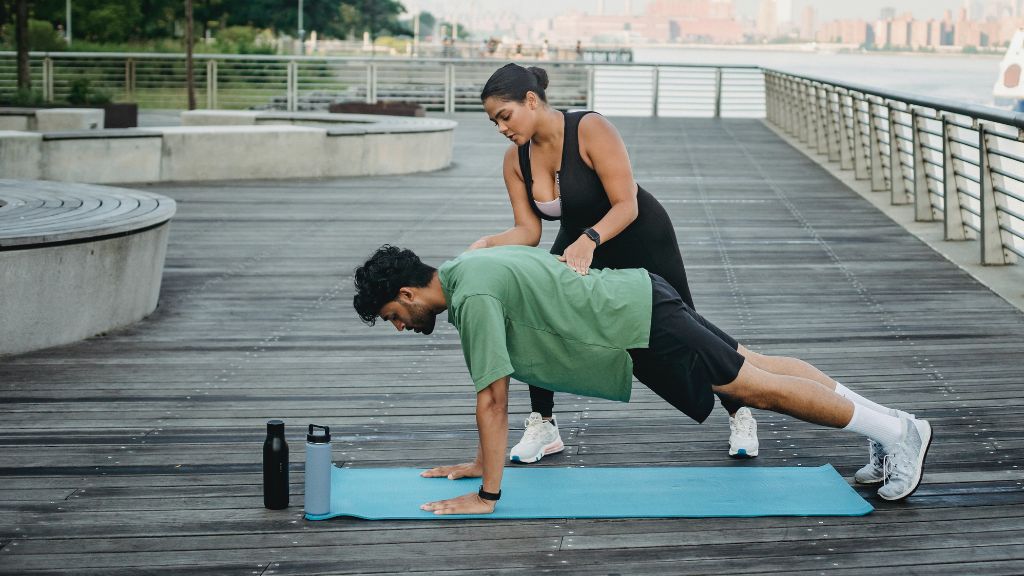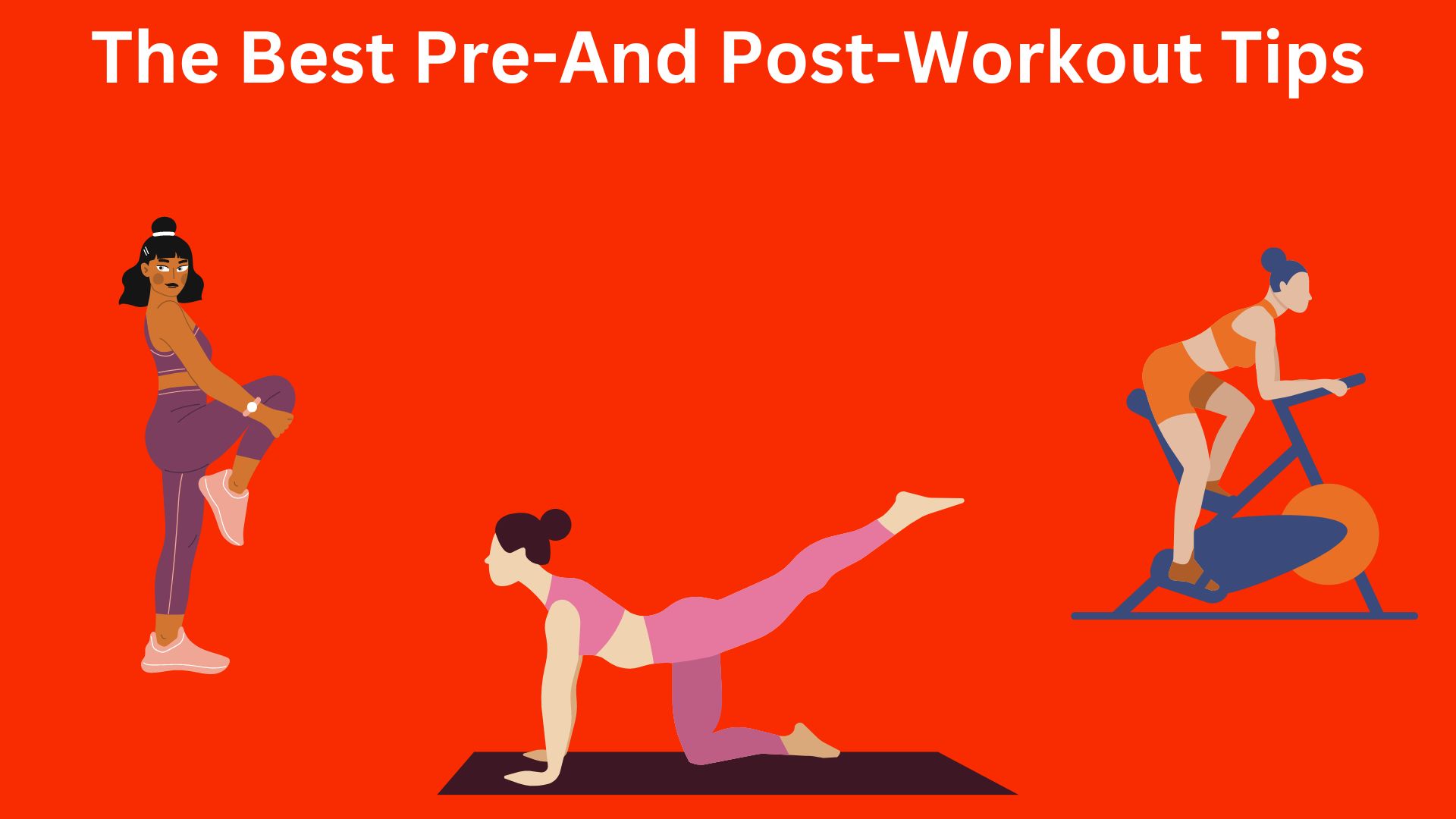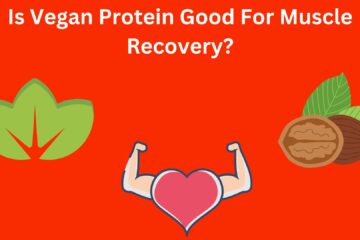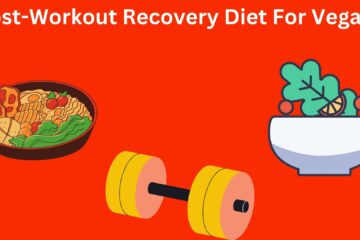Welcome to our pre- and post-workout suggestion blog! Exercise is an essential component of living a healthy lifestyle, and paying attention to your pre-and post-workout routines will help you get the most out of your exercises and recover quickly.
Proper diet, hydration, and recovery tactics are some crucial ideas for optimizing your pre-and post-workout routines. Following these guidelines will help you improve your performance, lower your risk of injury, and feel your best both during and after your workouts.
So, let’s get this party started!
5 Ways To Include Proper Nutrition During Pre-And Post-Workout Routine
1. Eat a balanced diet
Include a wide range of nutrient-dense foods in your diets, such as whole grains, fruits and vegetables, lean proteins, and healthy fats.
2. Stay hydrated
To assist in replacing fluids and supporting maximum performance, drink lots of water before, during, and after your workouts.
3. Eat before your workout
Before your workout, eat a modest snack or meal high in carbohydrates and protein to help fuel your body and boost endurance.
4. Eat after your workout
Consume a snack or meal containing both protein and carbohydrates within 30 minutes of your workout to help rebuild and repair your muscles.
5. Consider Supplements
If you are having difficulty getting all of the nutrients you require from food alone, you may want to consider supplementing your diet. However, before beginning any new supplement regimen, consult with a healthcare expert.
5 Ways To Include Proper Nutrition After Pre-And Post-Workout Routine
1. Consume a protein-rich snack or meal
Protein is essential for repairing and rebuilding muscle tissue following exercise. Protein-rich foods include lean meats, dairy products, beans, tofu, and nuts.
2. Include carbohydrates
Carbohydrates aid in replenishing glycogen stores depleted during activity. Whole grains, fruits, and vegetables are excellent sources of carbs.
3. Eat healthy fats
Healthy fats, such as the kind found in nuts, seeds, and avocado, can aid in recuperation and inflammation reduction.
4. Stay hydrated
Drinking plenty of water after your workout is critical for rehydration and healing.
5. Include anti-inflammatory foods
Anti-inflammatory foods, including berries, leafy greens, and fatty fish, can help reduce inflammation and boost recovery. Limiting or avoiding processed and sugary foods, which can contribute to inflammation, is also a smart option.
5 Importance Of Hydration During Pre-And Post-Workout Routine
1. Maintains body temperature
Adequate hydration is critical for regulating body temperature during activity, particularly in hot and humid weather.
2. Improves performance
Dehydration has been shown to reduce strength, endurance, and coordination in athletes.
3. Promotes recovery
Water is required for the normal functioning of all cells in the body, including muscle cells. Adequate hydration can aid in healing and reduce muscle discomfort following an exercise.
4. Supports cardiovascular health
Staying hydrated during exercise can help to support healthy blood flow and blood pressure, which are vital for cardiovascular health.
5. Helps to prevent injuries
Dehydration increases the likelihood of muscle cramps and strains; therefore, staying hydrated can help avoid these injuries.
15 Recovery Strategies During Pre-And Post-Workout Routine

During Workout Routine Recovery Strategies
1. Stay hydrated
Drink plenty of water before, during, and after your workout to help your body recover and perform at its best.
2. Eat a balanced diet
A diet high in protein, carbs, and healthy fats can help in muscle recovery and regeneration.
3. Get enough sleep
Sleeping enough is critical for recuperation and overall health. To give your body time to mend and rejuvenate, aim for 7-9 hours of sleep per night.
4. Use active recovery techniques
Active healing treatments like foam rolling and gentle stretching can assist improve blood flow to muscles and minimize muscle discomfort.
5. Take rest days
Rest days should be included in your workout plan to allow your body to properly recuperate. Overtraining and injuries can be avoided by doing so.
After Workout Routine Recovery Strategies
6. Hydrate
It is critical to restoring fluids lost during exercise by consuming water or a sports drink.
7. Eat a protein-rich snack
Consuming a protein-rich snack can aid in muscle healing and regeneration.
8. Stretch
Gentle stretching can help relieve muscle pain and increase flexibility.
9. Use a foam roller
Foam rolling can assist enhance blood flow to muscles and alleviate muscle pain.
10. Take a cold bath or shower
Cold water can aid in the reduction of inflammation and muscular discomfort.
11. Get a massage
Massages can assist in increasing blood flow to muscles while also promoting relaxation.
12. Use a hot and cold pack
Using hot and cold packs alternately can help reduce inflammation and muscle soreness.
13. Take a hot bath
A hot bath might help to enhance blood flow and relax muscles.
14. Sleep
Sleeping enough is critical for recuperation and overall health. To give your body time to mend and rejuvenate, aim for 7-9 hours of sleep per night.
15. Incorporate rest days
Rest days are essential for allowing your body to properly recover and avoid overtraining and injury.
5 Frequently Asked Questions On Pre-And Post-Workout Tips
It is critical to fuel your body before a workout to have the energy to perform at your peak. It is generally advised to consume a meal or snack that is heavy in carbohydrates and protein while being low in fat, fiber, and added sweets. A piece of fruit, a protein bar, or a small turkey or chicken sandwich is all good options.
Following a workout, it is critical to replace your body’s energy resources and repair any muscle damage that may have occurred. This is best accomplished with a snack or meal that contains both carbohydrates and protein. A protein smoothie, a bowl of oatmeal with nuts and berries, or a turkey and avocado wrap are some ideas.
It is critical to stay hydrated before, during, and after exercise. The amount of water you need may vary depending on your age, size, and activity level, as well as the weather and intensity of your workout.
As a general rule, drink 17–20 ounces of water 2–3 hours before exercising, followed by 8 ounces of water 20–30 minutes before beginning your workout. While working out, drink 7-10 ounces of water every 10-20 minutes. Drink enough water after your workout to thoroughly rehydrate and replace your body’s fluids.
Before a workout, dynamic stretching, which involves exercising your muscles through their complete range of motion, is often advised. Stretching like this might help warm up your muscles and prepare them for the demands of your workout.
After an exercise, static stretching, which involves holding a stretch for some time, is often suggested. This type of stretching can help your muscles relax and lengthen, as well as alleviate tightness and stiffness.
Pre-workout supplements are items designed to increase energy and performance during an exercise. Caffeine, B vitamins, and amino acids are common constituents in them. While some people find that pre-workout vitamins might enhance attention and endurance during exercise, they are not necessary for everyone.
Some people may be allergic to the chemicals in pre-workout supplements, resulting in negative side effects such as nervousness, dizziness, or nausea. Before beginning any new supplement regimen, it is usually a good idea to consult with a healthcare expert.
It is normally advised to consume a snack or meal within 45 minutes to an hour of completing an exercise. This is the best time for your body to restore its energy supplies and repair any muscular injuries that may have occurred throughout the activity.
This is best accomplished by consuming a snack or meal that contains both carbohydrates and protein. A protein smoothie, a bowl of oatmeal with nuts and berries, or a turkey and avocado wrap are some ideas.
Conclusion
Finally, taking care of your body before and after a workout is critical to sustaining a healthy and productive fitness regimen. Proper nutrition, hydration, and stretching can all help you perform and recover better. It is critical to fuel your body before an exercise with breakfast or snacks heavy in carbohydrates and protein and low in fat, fiber, and added sweets. It is critical to stay hydrated during exercise by consuming water and electrolyte liquids.
It is critical to refill your body’s energy resources and repair any muscular damage that may have occurred following an exercise. This can be accomplished by eating a snack or meal high in carbs and protein, as well as practicing static stretches to relax and lengthen your muscles. You may help maximize your fitness regimen and reach your health and fitness goals by following these excellent pre and post-workout guidelines.




[…] Exercise is a vital component of living a healthy lifestyle, and a good diet can help you achieve your fitness objectives. Carbohydrates are an important macronutrient for post-workout nutrition because they can assist repair and rebuilding of muscle tissue, restore glycogen stores, and boost recovery. […]